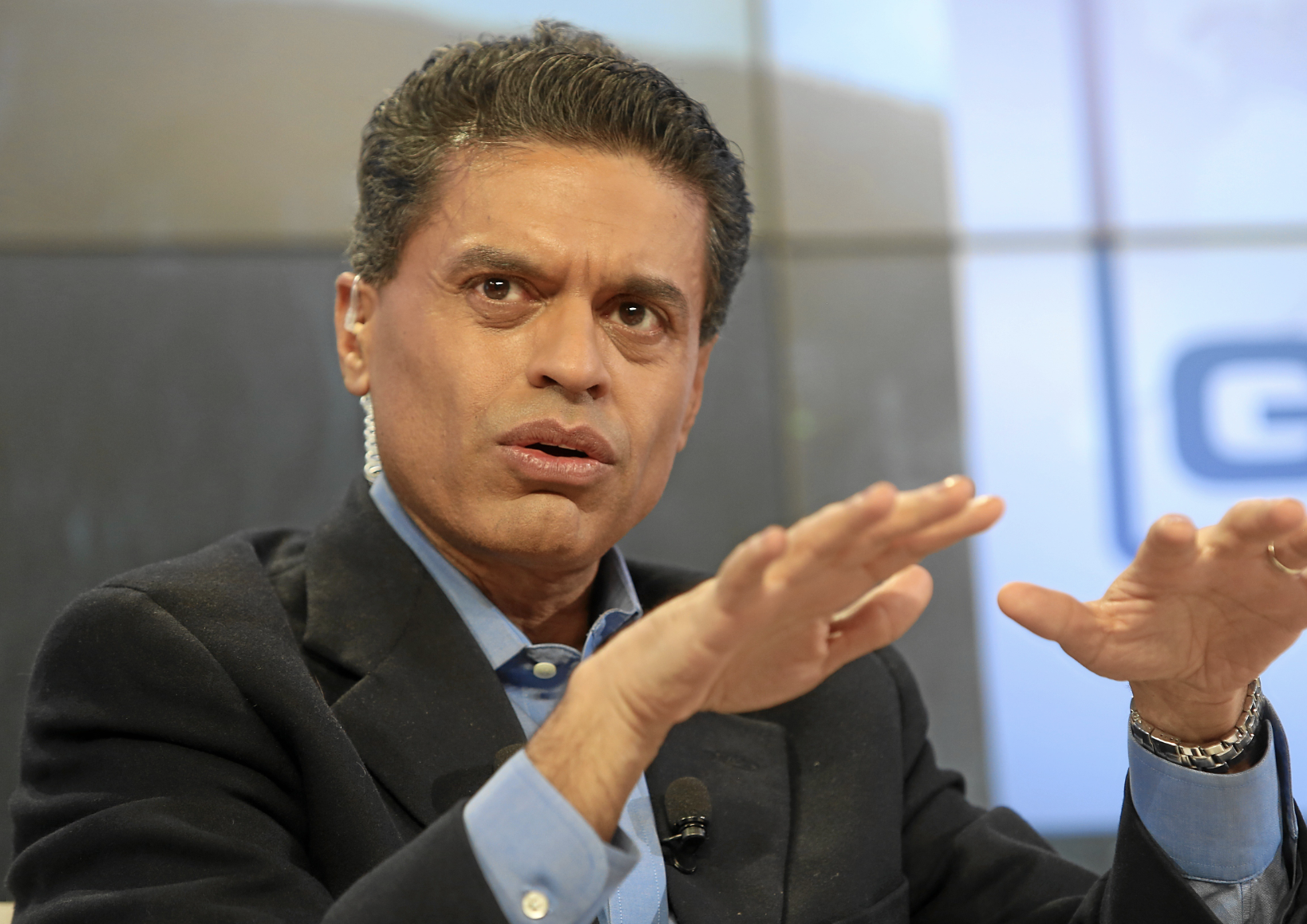
Wikimedia Commons
On Wednesday, Fareed Zakaria ’86 and Dean of the Faculty of Arts and Sciences Tamar Gendler talked about Zakaria’s latest book: “Ten Lessons for a Post-Pandemic World.”
Zakaria is a Washington Post columnist who also hosts Fareed Zakaria GPS for CNN on Sundays. The book is written in the format of 10 lessons in a variety of subjects, and contemplates the long-term effects of the COVID pandemic. The discussion, which was held through Zoom in a webinar format and hosted by Yale’s Jackson Institute for Global Affairs, began with specific questions about the book from Gendler, before audience members asked questions anonymously. Zakaria and Gendler noted being friends during their undergraduate years at Yale.
“The conversation will be an opportunity for participants to reflect on how the pandemic has both changed the trajectory of world history, and revealed structural features of the domestic and world order that were already true, pre-COVID, whose significance were not fully recognized or appreciated,” Gendler told the News in an email.
Gendler noted that the online format has made Jackson Institute events more accessible to Yale students, faculty, staff, the New Haven community and the broader public. Around 500 people registered for the event.
Jim Levinsohn, director of the Jackson Institute, introduced both event speakers. He noted that each is well-known within their “respective spheres” of philosophy and global affairs and that “they are instantly recognized by their first name alone.”
Gendler prefaced her first questions by emphasizing that the book as a whole seems to be rooted in the lesson: “Everyone is connected but no one is in charge.”
Zakaria confirmed this, and emphasized that “buckle up” is a main lesson of his book. He added that the COVID-19 pandemic is one of three “shocks to the system” in the last three decades, noting that it is unlike anything experienced in the world before it. The other two of the three shocks to the system are the 9/11 attacks and the global financial crisis of 2008.
“This may be the first event in our lifetimes, and it may be the only event in our lifetimes, that the entire planet is in some way experiencing simultaneously,” Zakaria said.
Zakaria also noted that humanity is progressing faster than it ever has before. His idea behind “buckle up” is understanding that “we are doing this in a somewhat unplanned, unthoughtful way.”
Zakaria also discussed the recent elections with Gendler, noting that “diplomas and density” were the major dividing factors — meaning educational attainment and geographical location of the American electorate. He went on to say that the “extraordinary divide” that exists politically in the United States, also exists in the United Kingdom and in France’s political divides.
Zakaria said that 70 percent of the US’s gross domestic product was generated by Biden voters, while 30 percent was produced by Trump voters, but that the 80 million Biden voters occupy only 10 percent of the United States’ landmass, due to mostly occupying cities. He further noted that this divide has been exacerbated by the pandemic.
“It’s not just about economics,” Zakaria said. “It’s about status and dignity … One unfortunate but true element about this whole story in America is that the white working class derived a certain status in America from the fact that, despite their low economic condition, they always could think of themselves as being above Blacks.”
Gendler then asked Zakaria to what extent he believes the world will be permanently transformed by COVID-19. Zakaria gave book sales as an example of many businesses shifting to online selling, while noting that it is not the only industry that will do so. He said that Amazon’s share of book sales in the United States is 65 to 70 percent of all book shares in the nation, proving that most people are buying books online rather than at local, independent bookstores.
“Anything that is fundamentally and exclusively transactional will move online,” he said. “Then we get into the gray zone of things that are not entirely transactional, but have a transactional element and … a social capital element.”
Zakaria emphasized that a more “holistic” view of the economy could come as a result of viewing the economy through median wages rather than GDP. According to him, American economist and former Chief Economist of the World Bank Larry Summers calculated that to get America to the income distribution it had in the 1990s would require a “$1 trillion transfer of wealth every year.”
The conversation ended with Gendler noting the final lines of his book: “The ugly pandemic has created the possibility for change and reform … It is ours to take that opportunity or to squander it. Nothing is written.”
“Ten Lessons for a Post-Pandemic World” was published on Oct. 6.
Ángela Pérez | angela.perez@yale.edu







